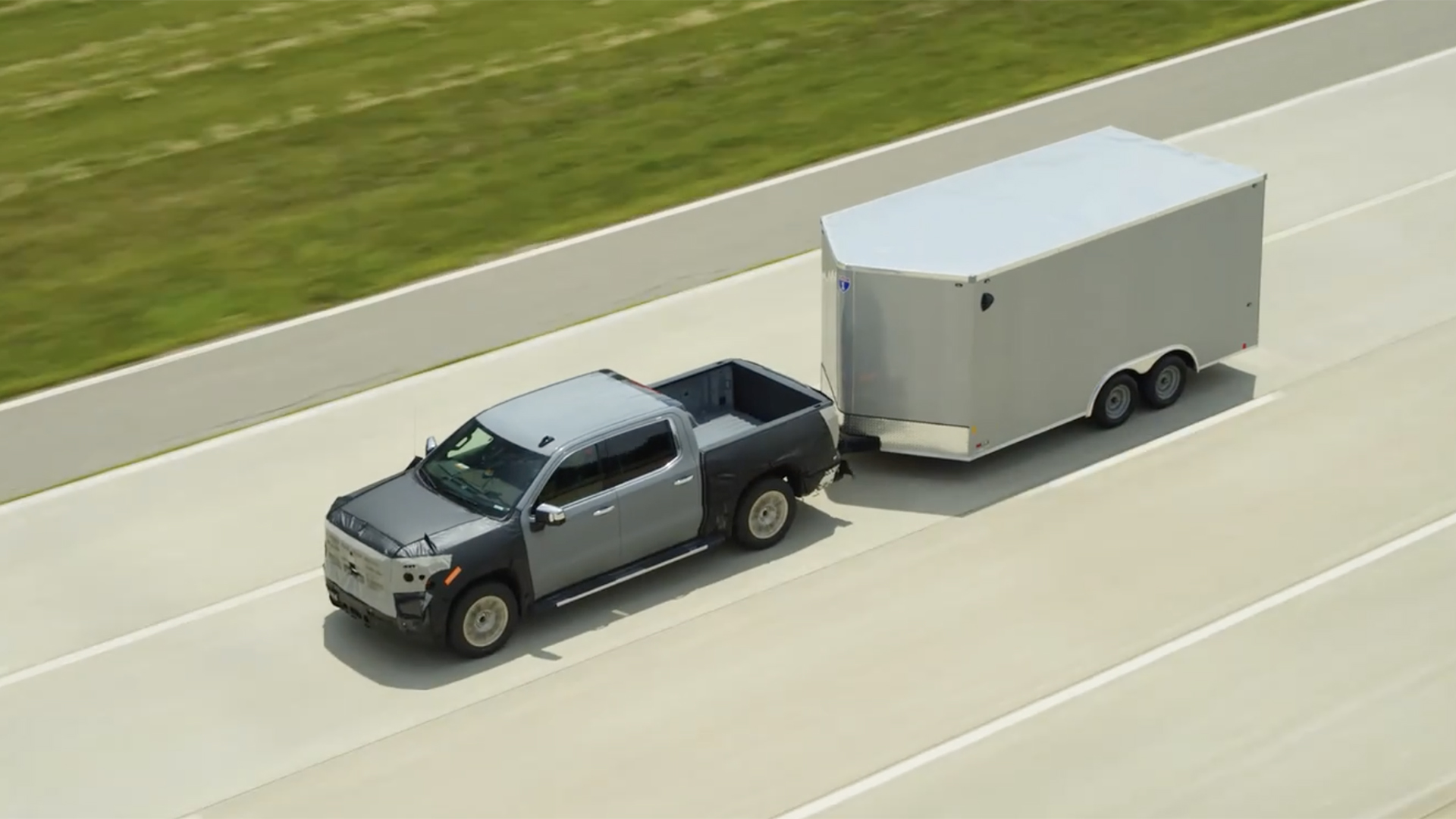

GM’s driving assist Super Cruise is a total luxury on long drives, allowing hands-free travel along 200,000 miles of American highway. It’s about to get even better in the 2022 GMC Sierra, where drivers will be able to conduct lane changes, or tow a trailer down the Interstate, all without lifting a finger. Literally.
You may be surprised to hear, however, that doing both these things at once is off the table. It’s not as simple as activating two functions at once, either; as it turns out, combining these features is far more complex. Adding a trailer alters Super Cruise’s operating parameters in a way that makes automated passing unsafe, forcing GM to save these two tricks for different parties.

This is rooted in how Super Cruise-equipped vehicles orient themselves and navigate the roadway environment, which in the 2022 Sierra prototype I drove was done with an array of sensors. Building on massive amounts of logged data and LiDAR-mapped highways, the Sierra sees the world through two cameras in the front bumper, one in each mirror, and one by the rear license plate. The two-dimensional picture these paint is then stretched over a three-dimensional one provided by seven radar sensors—three in the front bumper, four in the rear. Hitching a trailer, of course, obscures some of the rear sensors, making it unable to see rearward to gauge if an automatic pass is safe. Hence, GM disables the feature while towing.
But hold on, we hear you asking, GM’s transparent trailer camera tech works by installing a camera out back. Can’t GM add radar sensors to our trailers to re-enable these features?
The answer to that is, in theory, yes, though making such a system work safely and reliably isn’t as simple as it may sound on paper. That’s because on a Super Cruise-equipped vehicle, all of the system’s sensors are located at fixed positions relative to one another and don’t move independently the way trucks and trailers can. For added trailer sensors’ signals to be of use, their locations would need to be precisely triangulated, lest they feed bad info to the computer, and make the tow vehicle drive like a person trying to walk with both legs asleep.

This goes without saying that maintaining lane position with a trailer is a whole different ballgame from switching between lanes with one. GM only calibrated that function for the handling dynamics of a vehicle on its own, and trailers of varying sizes and weights greatly affect how vehicles maneuver, thus Super Cruise’s ability to control the vehicle.
None of this is to say trailers are an impassable hurdle for automated driving technologies, of course. Autonomous trucking startups seek to solve this very problem, though commercial trucking fleets utilize trailers that are—broadly speaking—of a more uniform size than those towed by personal vehicles. This limits the number of variables AV engineers must contend with, and makes automated towing tech a slightly simpler problem to solve for commercial purposes than it does personal transport.

Automated lane-changing while towing, of course, isn’t a feature we should rule GM out of offering eventually. GM told us it’s “always looking to improve the system, but [had] nothing to share at this time.” Due to the complexity of engineering such a luxury, though, never mind the incredibly small market for it, it’s not one we should expect to see fast-tracked. Anticipate instead that you’ll soon see more drivers with their hands in their laps than ever before, as Super Cruise’s upgrades arrive to a total of six models that will be on sale come early 2022.
Got a tip or question for the author? You can reach them here: james@thedrive.com